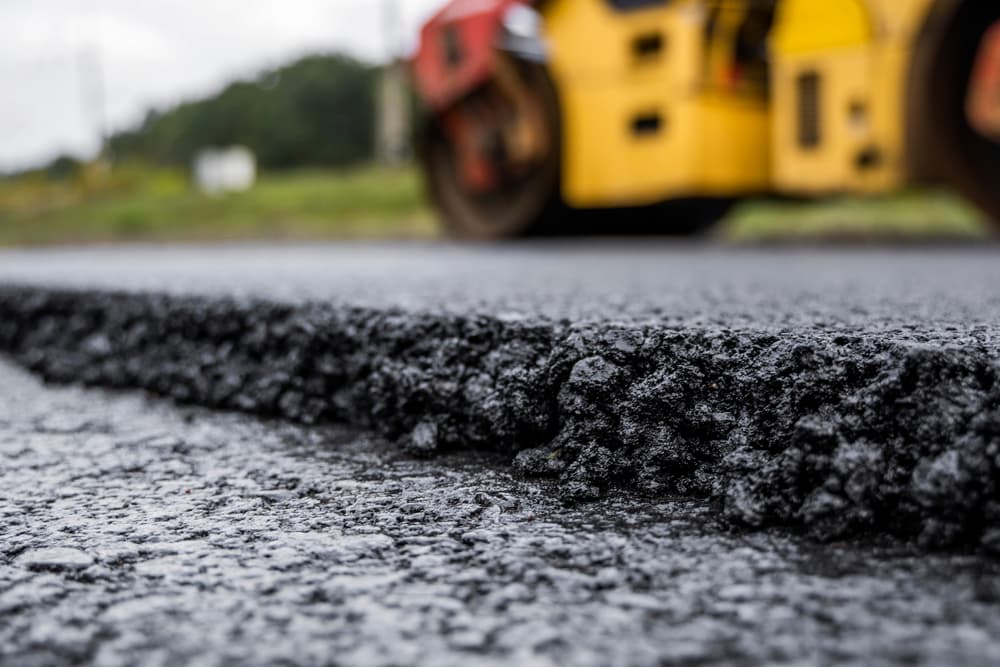Upgrade Your Residential or commercial property's Visual and Performance with Hot Mix Asphalt Paving
Upgrade Your Residential or commercial property's Visual and Performance with Hot Mix Asphalt Paving
Blog Article
Discovering the Environmental Advantages of Hot Mix Asphalt
The utilization of Hot Mix Asphalt in infrastructure tasks presents a compelling case for lasting advancement and environmental stewardship. By delving right into the detailed details of its manufacturing procedures and the ingenious usage of recycled products, a deeper understanding arises of how this technology surpasses mere surface area applications. The ecological benefits of Hot Mix Asphalt prolong far past preliminary perceptions, offering a nuanced viewpoint on exactly how this material can pave the way for a greener future.

Decreased Greenhouse Gas Emissions
Hot Mix Asphalt production provides a significant reduction in greenhouse gas emissions compared to various other sidewalk products. The manufacturing process of Warm Mix Asphalt includes warming the combination of aggregate and asphalt binder to high temperatures. This procedure needs less energy contrasted to the production of alternative sidewalk materials, resulting in reduced greenhouse gas exhausts. Furthermore, using recycled products in Hot Mix Asphalt further contributes to minimizing its ecological influence. By including redeemed asphalt sidewalk and recycled asphalt tiles into the mix, the need for virgin materials is lowered, bring about power cost savings and decreased emissions connected with removal and processing.
Research studies have actually shown that Hot Mix Asphalt pavements have a smaller carbon footprint over their life process compared to various other sidewalk options. The longevity and recyclability of Hot Mix Asphalt better enhance its environmental benefits by lowering the demand for regular upkeep or replacement, consequently preserving sources and reducing exhausts connected with reconstruction tasks.
Energy Performance and Preservation
The production process of Hot Mix Asphalt not only reduces greenhouse gas exhausts however also adds substantially to energy effectiveness and preservation efforts. Power effectiveness is a key benefit of Warm Mix Asphalt manufacturing compared to various other sidewalk types. The process involves warming the materials at heats to create the asphalt mix, which needs less power than alternative methods. Furthermore, the ability to recycle and reuse asphalt pavement additionally enhances power preservation. By incorporating recovered asphalt pavement (RAP) into new blends, the industry conserves energy that would have been required to create totally new products. The sturdiness of Warm Mix Asphalt lowers the frequency of upkeep and restoration, leading to lasting power savings. This durability minimizes the energy-intensive procedures associated with regular repairs and substitutes. Generally, Hot Mix Asphalt attracts attention as an eco-friendly choice that prioritizes energy performance and conservation throughout its lifecycle.
Lasting Pavement Solutions

One secret facet of lasting sidewalk options is using recycled materials such as reclaimed asphalt sidewalk (RAP) and recycled asphalt tiles (RAS) By integrating these materials into the asphalt mixes, the demand for virgin sources is decreased, causing lower power usage and greenhouse gas exhausts throughout manufacturing. Additionally, the reuse of these products aids draw away waste from land fills, adding to a more circular and lasting economy.
Moreover, lasting pavement solutions focus on optimizing sidewalk style to improve efficiency and longevity. Methods such as warm mix asphalt (WMA) and stone mastic asphalt (SMA) improve the toughness and resilience of sidewalks, reducing the requirement for constant fixings and replacements. By implementing these ingenious approaches, framework designers can develop pavements that not only fulfill high-performance standards however also decrease their ecological footprint.
Minimized Environmental Influence
With a concentrate on sustainability and eco-conscious practices, pavement solutions are made to decrease the environmental effect of building and construction and maintenance procedures. Warm mix asphalt, specifically, uses a number of advantages that add to decreasing the overall ecological footprint of road facilities. One essential aspect is the recyclability of asphalt, which can be reused multiple times without compromising its top quality. This particular helps in conserving all-natural sources and lowering the quantity of waste sent out to landfills.
Moreover, the production of hot mix asphalt gives off reduced levels of greenhouse gases compared to various other sidewalk materials, making it an extra eco-friendly choice. The energy performance of asphalt plants has also boosted over the years, causing minimized fuel consumption and lower exhausts. Furthermore, the smooth surface area of hot mix asphalt decreases rolling resistance for lorries, leading to reduced fuel intake and lowered air pollution from lorry discharges.
Payment to Environment Adjustment Reduction
Hot mix asphalt plays an important duty in mitigating environment adjustment with its lasting buildings and minimized ecological impact. One considerable contribution to climate modification reduction originates from the energy efficiency of warm mix asphalt manufacturing. Contrasted to various other sidewalk choices, the production process for warm mix asphalt eats much less power and sends out reduced degrees of greenhouse gases, therefore minimizing its total carbon impact.
Furthermore, hot mix asphalt's capacity to mirror sunlight, referred to as albedo, assists in minimizing metropolitan warm island results. By decreasing heat absorption and retention, warm mix asphalt pavements can lower the demand for cooling in city areas, consequently lowering greenhouse gas exhausts linked with energy intake for cooling purposes.
In addition, the toughness and recyclability of warm mix asphalt further enhance its environment modification mitigation capabilities. Regrading. The lengthy lifespan of asphalt sidewalks decreases the demand for constant repair services or replacements, ultimately reducing the carbon discharges linked to roadway maintenance activities. The recyclability of asphalt products decreases the need for virgin resources and lowers the ecological influence of sidewalk building, lining up with lasting techniques for climate change reduction.
Verdict
To conclude, the environmental benefits of Warm Mix Asphalt demonstrate its significant contribution to decreasing greenhouse gas discharges, saving energy, and reducing ecological impact. This lasting sidewalk remedy lines up with environment adjustment mitigation initiatives, advertises resource preservation, and enhances facilities growth. By making use of recycled products, energy-efficient manufacturing procedures, and resilient layout, Hot Mix Asphalt plays a vital role in promoting a much more eco-friendly technique to infrastructure building and construction.
The production process of Warm Mix Asphalt entails heating up the mix of accumulation and asphalt binder to high temperatures. By including reclaimed asphalt sidewalk and recycled asphalt roof shingles into the mix, the demand for virgin materials is minimized, leading to energy financial savings regrading and lowered emissions associated with extraction and processing.
One trick facet of sustainable sidewalk services is the usage of recycled products such as recovered asphalt sidewalk (RAP) and recycled asphalt tiles (RAS) Strategies such as cozy mix asphalt (WMA) and stone mastic asphalt (SMA) improve the resilience and strength of sidewalks, reducing the need for regular fixings and replacements. Compared to various other sidewalk choices, the manufacturing procedure for hot mix asphalt eats much less power and gives off reduced degrees of greenhouse gases, hence decreasing its general carbon impact.
Report this page